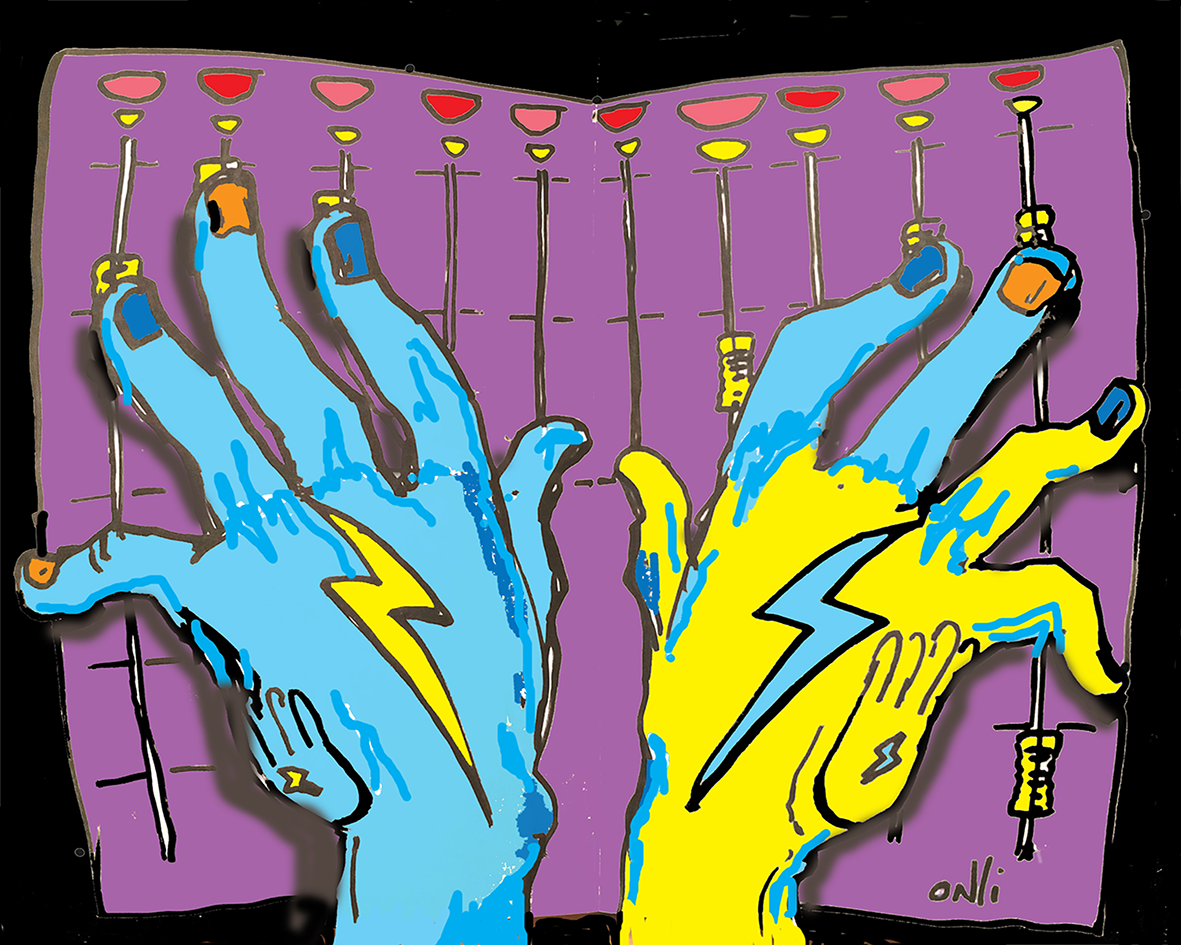As part of a wave of nearly two thousand newly approved low-power stations across the country, Bridgeport’s Lumpen Radio, self-proclaimed “weirdo radio station in Chicago for weirdo people everywhere,” has officially expanded to the FM airwaves.
Previously an online-only station, Lumpen Radio offers a hodgepodge of music and talk shows by volunteer DJs and producers. A project of the Public Media Institute, the Lumpen Media Group, of which Lumpen Radio is a part, has brought counter-culture content to Chicago since its creation in the early nineties in response to “fear that the monopolization of media would lead to a stifling of dissenting opinion,” according to Lumpen co-founder Ed Marszewski.
Getting the station licensed and ready to broadcast for its November launch took eighteen months and $100,000 in fundraising. It was “like having a baby,” said station director Logan Bay, who has worked with Lumpen since 2000. “I’ve probably listened to more Lumpen Radio than any other human on the planet.”
Lumpen Radio is part of the largest influx of new stations in the history of radio, made possible when the FCC opened up a brief licensing window for low-power FM stations in the fall of 2013. The licensing opportunity came after a protracted legal and legislative battle with community radio activists that lasted over a decade.
Low-power FM stations provide coverage within roughly three to five miles, operating at a power of one hundred watts. By comparison, large commercial radio stations operate between 50,000 and 100,000 watts. Low-power licenses are designated as “non-commercial-educational,” meaning that stations can have underwriters but no commercials, and that they must have an educational mission, though the details of this requirement are not specified.
Launching into FM at a time when podcasts and online music services like Spotify are ultra-accessible may seem like a step into the past, but Bay said he still sees unique value in broadcast radio. “A lot of people don’t actually listen to podcasts. It’s such a bougie, middle-class thing—a lot of people don’t have data plans or Internet at home. FM radio is still a free source of information and content and news,” he said. “If I talk about the Internet or even TV, you get people like ‘Eh, I like it but I hate it’…but with radio people are always like, ‘There was this time when I heard this thing and it changed my life.’ I hear those stories all the time and I’m like, ‘That’s what makes radio amazing.’ ”
Leah Menzer, producer of a talk show for Lumpen Radio called EcoChicago and a co-founder of Lumpen Radio, was essential in getting the station on the air, navigating Lumpen through the tricky FCC licensing and tower-building process. “It’s the golden age of radio, I would say, right now,” she said. “There’s never been such public attention to creative radio art before now. It usually used to be that the news journalism tradition was the American way of doing radio. But recently it’s like—This American Life, the whole Gimlet thing, all that kind of stuff is blowing up.”
While Lumpen has traditionally been able to publish its radical content without fear of censorship, the new station is subject to FCC regulations. These regulations prohibit obscene, indecent, or profane programming, as well as any material that incites or produces lawbreaking. They also forbid “news distortion”—“rigging or slanting the news” through intentional falsification—and “hoaxes,” defined as “false information concerning a crime or catastrophe” causing “substantial public harm.”
These rules are “making us kind of change our mindset a little bit,” Bay said. “You can’t jeopardize thousands of people’s time and effort and donations and volunteers’ work to do something super nuts now…. So we have to be very understanding of what’s going on and make those choices as a group.”
The adjustment to FCC regulations is one of the factors Bay is keeping in mind as Lumpen “come[s] aboveground from being underground for twenty-five years,” Bay said. “What does that mean for us as an organization?”
But Lumpen loyalists need not worry; Menzer says that the station’s core “weirdness” is here to stay. The hyper-local station remains “a place to find information that you can’t find anywhere else, or to be like, ‘I can talk to ghosts too!’ ” she said. “[Lumpen Radio is] a place to hear things that are not homogenized so you can find yourself and be a weird little butterfly.”
The first few months of broadcasting have “energized” the station, according to Menzer, who said she hopes to increase collaboration with other local media as well as with the newly-expanded national network of low-power FM stations.
Though the station has been getting “a much bigger reach than we expected on the north and northwest side, we’re still not getting as far south as we want to get,” Bay said. He is hoping to work on getting the station’s signal further south in the coming year, one of many adjustments he anticipates making as the station grows.
“I’m sure we’re going to make lots of mistakes and do things completely wrong,” he said. “But I also think us doing something that’s completely non-traditional radio might work in our favor and get people to gravitate towards what we’re doing.”
Leah Menzer, who was interviewed for this story, is a contributor to the Weekly.
Tune in to Lumpen Radio at WLPN 105.5 FM or at lumpenradio.com

